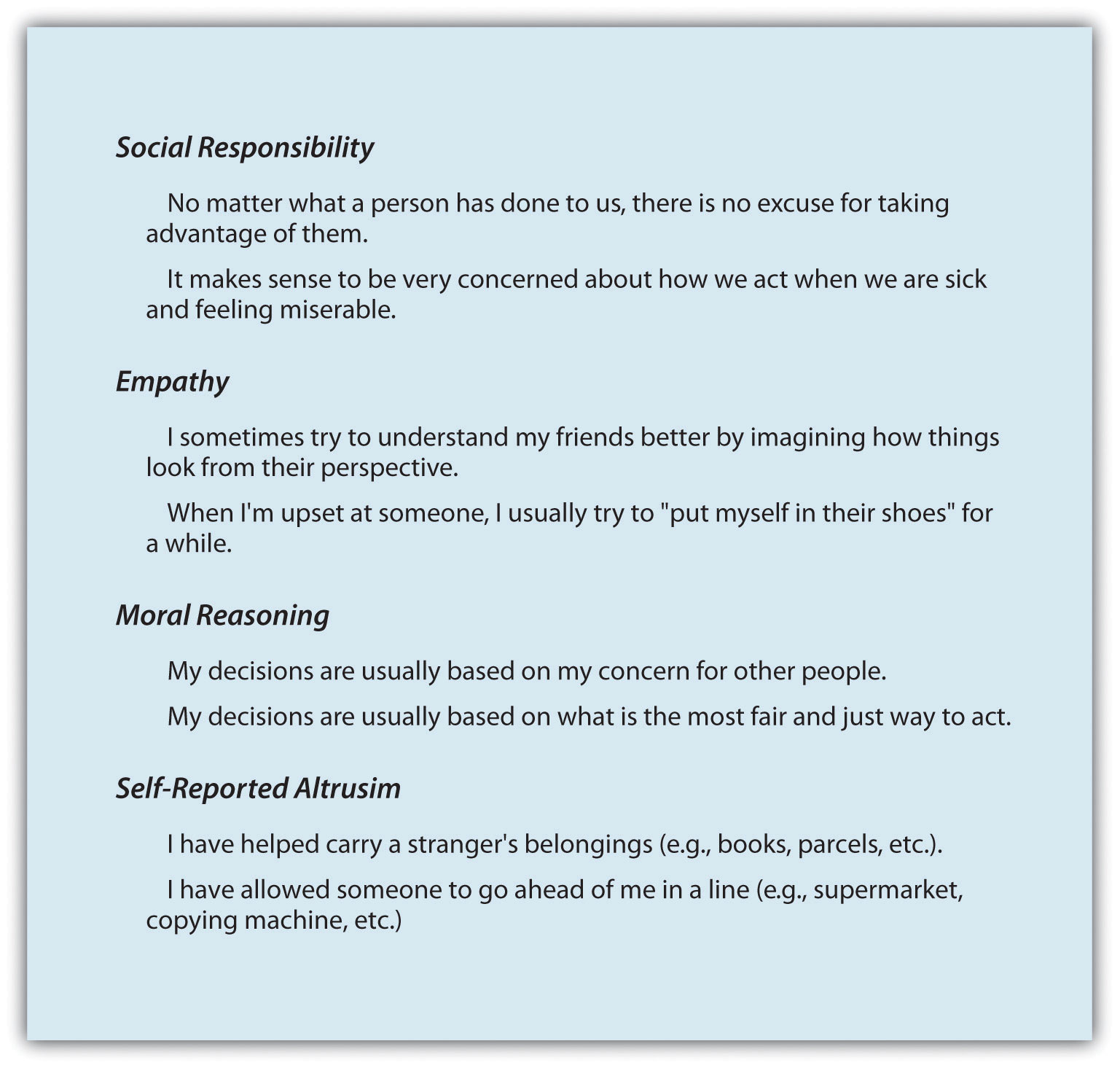We have seen that the social situation is a very strong determinant of whether or not we help. But although the effects of personality may not generally be as strong as those of the social context, person variables do matter. Some people are indeed more helpful than others across a variety of situations, and we say that these people have an altruistic or prosocial personality (Penner, Fritzsche, Craiger, & Freifeld, 1995). To see how you stand on this variable read the statements in Figure 8.10, and consider the extent to which you agree with them.

The altruistic personality involves both the cognitive and the emotional responses that we experience around others. People with altruistic personalities tend to show empathy and sympathy for others and feel that it is appropriate and right to follow the norm of social responsibility. These people help more people in a wider variety of areas, including providing help to coworkers, donating organs, and volunteering, and also have been found to help more quickly than do people who score lower on these measures (Borman, Penner, Allen, & Motowidlo, 2001; Penner, 2002). A longitudinal study conducted by Nancy Eisenberg and her colleagues (Eisenberg et al., 1999) found that children who were the most helpful when they were measured in their preschool classes also were the most helpful later in childhood and in early adulthood, suggesting that they really were helpful people. People with altruistic personalities seem to be people who have a strong other-concern—they like to be with, to relate to, and to help others.
The altruistic personality is in part heritable. Research has found that identical twins are more similar to each other in both their helping-related emotions (such as empathy) and their actual helping than are fraternal twins, who share only a portion of their genetic makeup (Davis, Luce, & Kraus, 1994).
- 11821 reads






